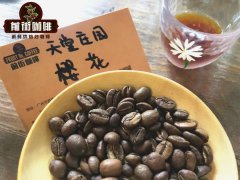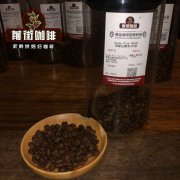What are Costa Rican coffee grades? Musician Series Mozart Treatment Flavor Features
Mozart, Costa Rica
Country of origin: Costa Rica
Producing area: Tarazhu
Altitude: 1800m
Variety: H1
Treatment: raisin honey treatment
Baking degree: medium and shallow baking
It is recommended that the gram weight of hand-brewed coffee recommended by SCA should be 15g coffee powder 90 degrees to 91 degrees hot water 225ml and the ratio of water to powder at 1:15.
The flavor is complex floral and fermented sauce, with raisins, dried fruit-like sweetness, sour notes of carambola and berries, and sweet sugar.
Mozart is known as Mozart, the prodigy of the classical music collection, and is famous for his gorgeous classical music, so the gorgeous smell of Mozart coffee beans refers to Mozart's elegant floral fragrance.
The aroma of white flowers such as orange blossoms can also be felt during brewing, while the gorgeous taste means that Mozart coffee has more dark berries, raisins and traces of red berries.
In the middle and later section, you can also feel the acid value of plums and the sweetness of gummy bears; it still retains the fragrance and sweetness of flowers when it is cold. The flavor is very unique, and you can really feel the gorgeous taste.

H1 coffee bean: H1 full name Centroamericano H1, is the Nicaraguan Sebaco laboratory continues to carry out research, H1 is a hybrid of Lumi Sudan and Sachimo T-5296, Lumi Sultan was found in the Boma Plateau of Sudan Rumei Valley, and hence the name, this kind of coffee has good quality, good taste but poor disease resistance. However, the hybrid varieties can well inherit their flavor genes. The genetically stable H1 varieties have high productivity, potential high quality, adaptability and strong resistance to leaf rust, but are easily affected by American leaf spots.
Tarrazu, located in the south of the country's capital, SanJose, is the main producer of Costa Rican coffee and one of the major coffee producers in the world. It is 1200-1700 meters above sea level, with fertile soil and good drainage. Finca Canet is a small 5-hectare estate in the town of San Marcos in Tarrazu, owned by three brothers, the Robles brothers Leo and Elian and Melvin, who have worked together for more than 10 years and share a small water treatment plant (Beneficio). Canet Manor is located in the highest growing area of Tarrazu coffee in Costa Rica, which is the densest fruit growing area in Costa Rica.

Coffee is an important economic source of Costa Rica. It was introduced in 1808 and has been cultivated for 200 years. Costa Rica has 1x3 population invested in coffee-related industries, coffee has changed the country, can enjoy a rich environment, coffee is indeed outstanding contribution; although the land area of Costa Rica ranks third from the bottom of Central America, but the economic environment is better than half of the countries, and because of the affluence of the people, social stability, but also have the spare capacity to care about environmental issues, there are more than 30 national parks in Costa Rica.
Coffee was introduced into Costa Rica from Cuba in 1729. Today, its coffee industry is one of the well-organized industries in the world, with a yield of 1700 kg per hectare. Costa Rica has only 3.5 million people but 400m coffee trees, and coffee exports account for 25 per cent of the country's total exports. Costa Rica's volcanic soil is very fertile and well drained, especially in the central plateau CentralPlateau, where the soil consists of successive layers of ash and dust. Costa Rica was therefore the first country in Central America to grow coffee and bananas for commercial value. Coffee and bananas are the country's main exports.

Important Notice :
前街咖啡 FrontStreet Coffee has moved to new addredd:
FrontStreet Coffee Address: 315,Donghua East Road,GuangZhou
Tel:020 38364473
- Prev

How good is Colombian coffee? What are the origins and characteristics of the cherry blossom coffee bean story?
Colombian cherry blossom producing country: Colombia producing area: Cauca variety: Castiyou altitude: 2050m baking degree: medium and shallow roasting treatment: double anaerobic washing method recommended according to the SCA recommended handbrew coffee weight 15g coffee powder 90 degrees to 91 degrees hot water 225ml, gouache ratio 1:15. The flavor is reflected in the sweetness of strawberry jam and the aroma of chamomile. Entrance grass
- Next

Costa Rican Baja and Mozart Coffee Bean Flavor Characteristics Comparison Introduction
Costa RicaCountry of Origin: Costa RicaRegion of Origin: Tarajucante Estate Altitude: 1900m Variety: F1Treatment: Raisin Honey Treatment Roast Degree: Medium Light Roast Recommended by SCA Hand brewed coffee gram weight 15g Coffee powder 90 ° to 91 ° Hot water 225 ml, water powder ratio 1
Related
- Detailed explanation of Jadeite planting Land in Panamanian Jadeite Manor introduction to the grading system of Jadeite competitive bidding, Red bid, Green bid and Rose Summer
- Story of Coffee planting in Brenka region of Costa Rica Stonehenge Manor anaerobic heavy honey treatment of flavor mouth
- What's on the barrel of Blue Mountain Coffee beans?
- Can American coffee also pull flowers? How to use hot American style to pull out a good-looking pattern?
- Can you make a cold extract with coffee beans? What is the right proportion for cold-extracted coffee formula?
- Indonesian PWN Gold Mandrine Coffee Origin Features Flavor How to Chong? Mandolin coffee is American.
- A brief introduction to the flavor characteristics of Brazilian yellow bourbon coffee beans
- What is the effect of different water quality on the flavor of cold-extracted coffee? What kind of water is best for brewing coffee?
- Why do you think of Rose Summer whenever you mention Panamanian coffee?
- Introduction to the characteristics of authentic blue mountain coffee bean producing areas? What is the CIB Coffee Authority in Jamaica?

